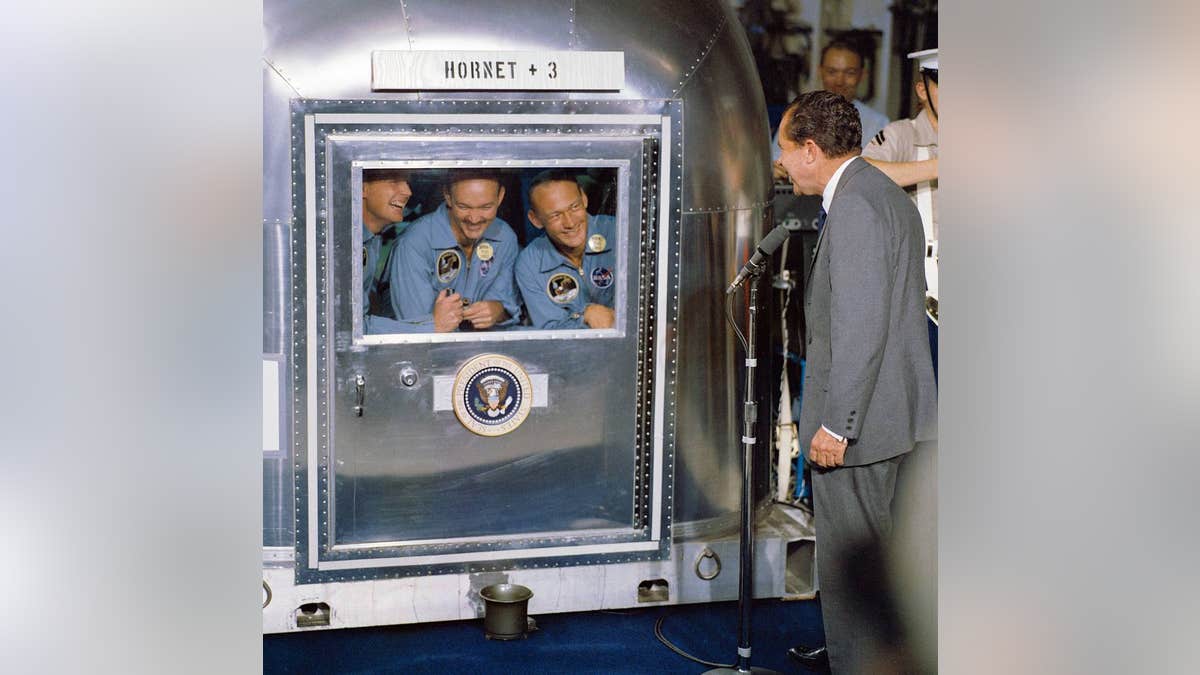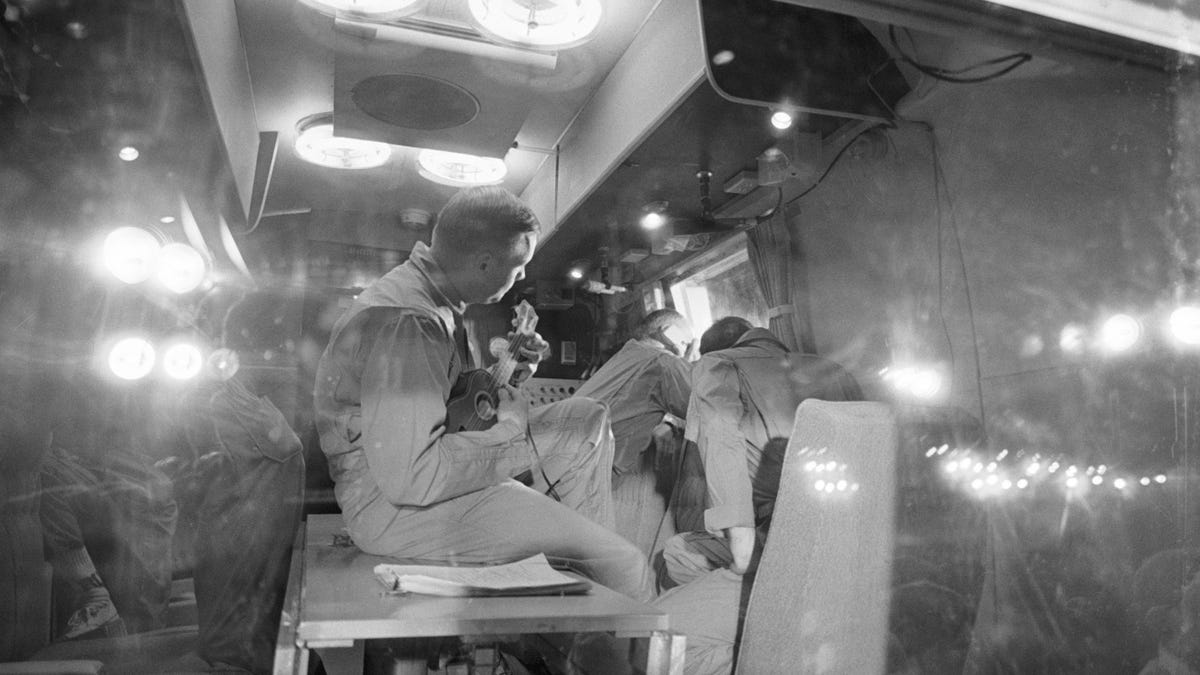50 years after Apollo 11, Neil Armstrong’s sons describe watching their dad walk on the Moon
50 years after the Apollo 11 mission, Neil Armstrong’s sons Mark and Rick describe the day when their father walked on the Moon.
Get all the latest news on coronavirus and more delivered daily to your inbox. Sign up here.
Amid the coronavirus pandemic, Apollo 11 Lunar Module Pilot Buzz Aldrin has recounted the quarantine period he spent with fellow astronauts Neil Armstrong and Michael Collins following their historic moon mission.
“How is everyone spending their quarantine time?” the second man on the Moon tweeted Sunday. “After Apollo 11, I spent mine inside a secure building, the Lunar Receiving Laboratory, for 3 weeks - writing mission reports, conducting debriefs & exercising! Show me how you’re staying safe from COVID-19.”
Aldrin, 90, is self-isolating amid the pandemic.
APOLLO 11’S MICHAEL COLLINS RECOUNTS THE CREW’S THREE-WEEK QUARANTINE ON THEIR RETURN FROM THE MOON
Last year, Apollo 11 Command Module Pilot Michael Collins told Fox News that the quarantine period “was a piece of cake.

President Nixon talks to the Apollo 11 astronauts in their Mobile Quarantine Facility (MQF) on the USS Hornet. (NASA)
Scientists were concerned that the Apollo 11 crewmembers may have brought pathogens back from the moon with them, so they immediately entered a Mobile Quarantine Facility (MQF), a converted Airstream trailer that was waiting for them on recovery ship USS Hornet when they splashed down in the Pacific on July 24, 1969.
The MQF containing the astronauts was lifted off the USS Hornet when it reached Pearl Harbor and then transferred to Hickam Air Force Base, where it was loaded onto an Air Force C-141 jet transport and flown to Ellington Air Force Base in Houston. From there, the astronauts were taken to the more spacious confines of the Lunar Receiving Laboratory at Johnson Space Center.
BUZZ ALDRIN GIVES SURPRISING RESPONSE WHEN ASKED ABOUT PROTECTING HIMSELF FROM CORONAVIRUS
In addition to NASA personnel, the astronauts also had a large group of rodent roommates at the Lunar Receiving Laboratory, who were carefully monitored for signs of any germs brought back from the moon.

An interior view of the Mobile Quarantine Facility shows the Apollo 11 crew after their arrival at Ellington Air Force Base. Mission Commander Neil Armstrong is strumming on a ukulele while Michael Collins (right foreground) and Buzz Aldrin (right background) are looking out the window. The other people in the picture are MQF support personnel. (NASA)
“We had a huge colony of white mice,” Collins told Fox News. “The three of us had gone to the moon – that was either a national, international, triumph, or it was a total disaster depending on the health of the white mice that we had.”
“If the mice lived, everything was fine,” he added.
After traveling hundreds of thousands of miles to and from the moon, the trio of astronauts were now going nowhere, at least for a while.
“Although all three astronauts were veterans of prior missions, none had ever spent so much time in space, and post-mission activities had never been conducted under strict confinement,” notes NASA’s history office. “Thus quarantine quickly became oppressive, the more so because only meager provision had been made for recreation. An exercise room was available, as well as a Ping-Pong table, and they could read or watch television or talk by telephone to their families, but it was not like being at home.”
Less than a week after their return from space, NASA asked the astronauts how their time in the receiving laboratory was going. Armstrong’s “noncommittal” response was that, so far, it had been going "about as well as you can expect." Collins, understandably, said “I want out,” according to the space agency’s history office.
CLICK HERE FOR COMPLETE CORONAVIRUS COVERAGE
Fortunately, the colony of mice did not display any ill effects and the astronauts were finally released from quarantine on Aug. 10, 1969.
The MQF used by the Apollo 11 astronauts is now in the collection of the Smithsonian National Air and Space Museum.
CLICK HERE TO GET THE FOX NEWS APP
As of Monday morning, at least 732,153 coronavirus cases have been diagnosed worldwide, at least 143,055 of which are in the U.S. The disease has accounted for at least 34,686 deaths around the world, including 2,513 people in the U.S.
Fox News’ Louis Casiano contributed to this article. Follow James Rogers on Twitter @jamesjrogers

